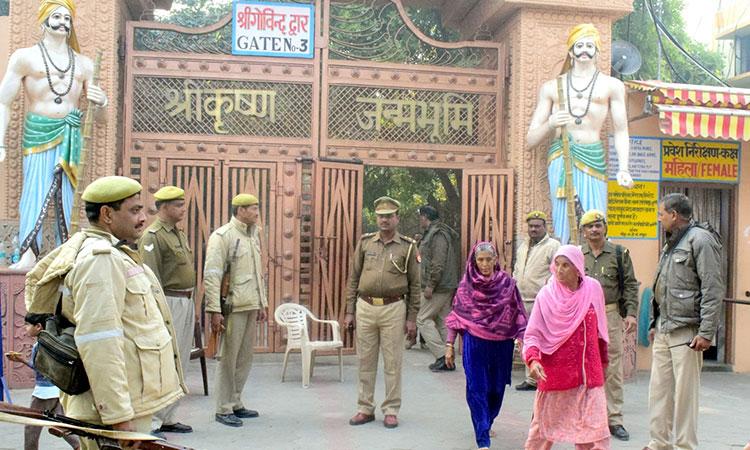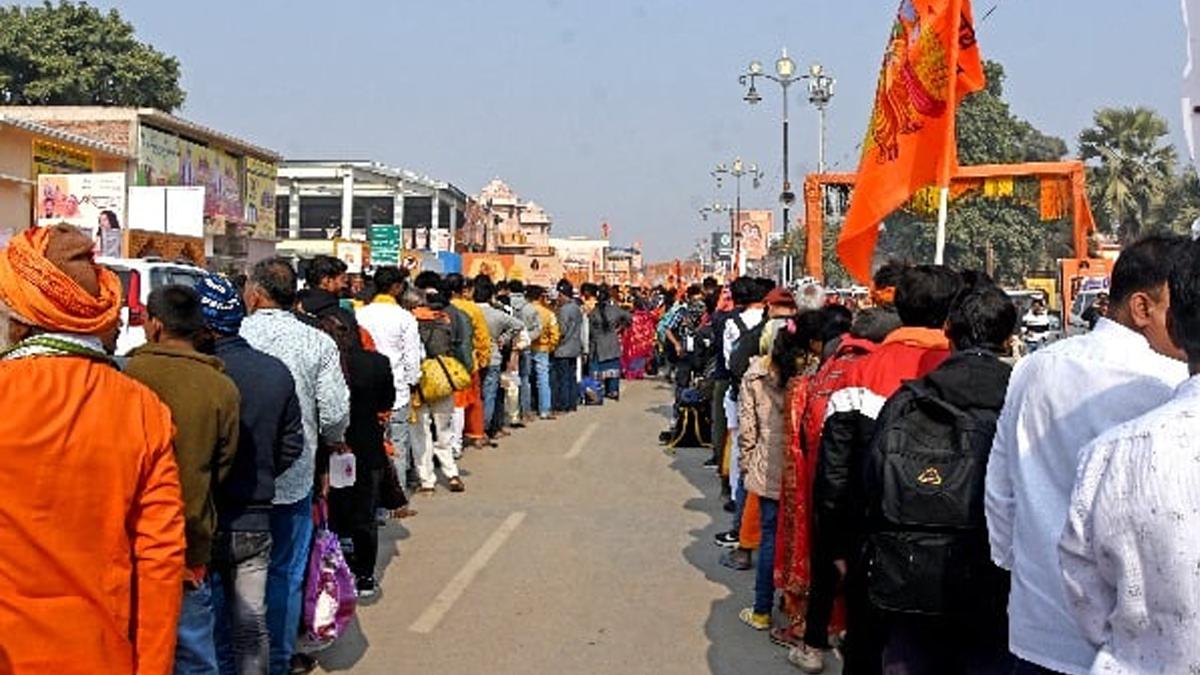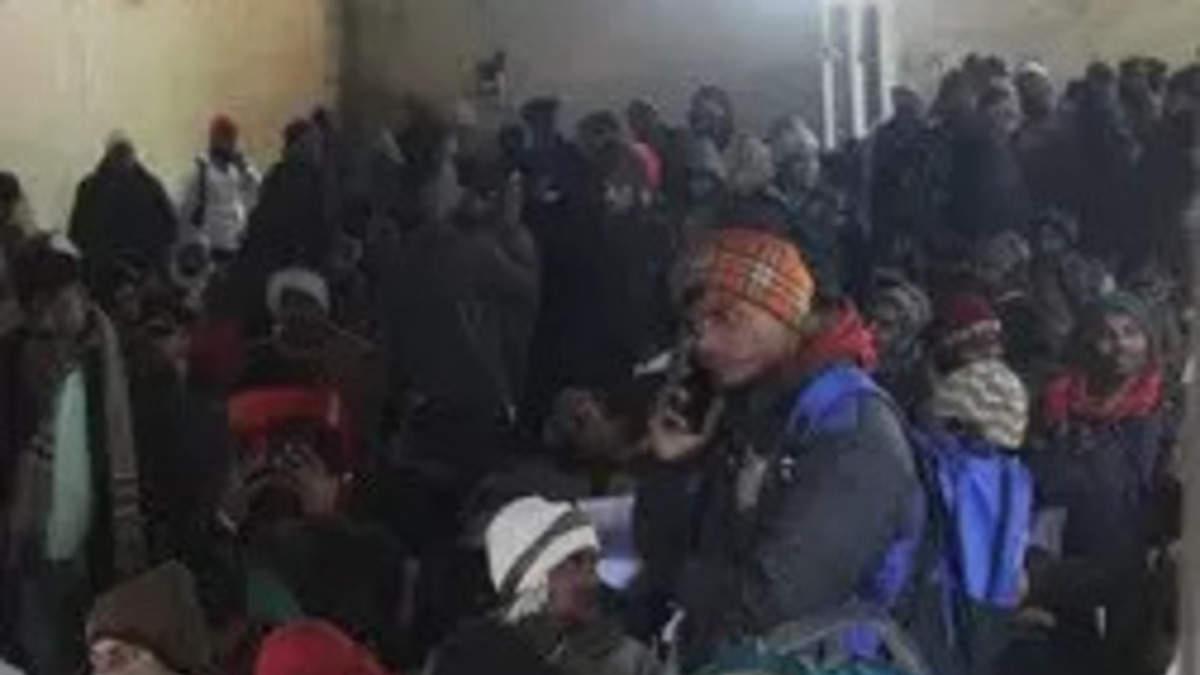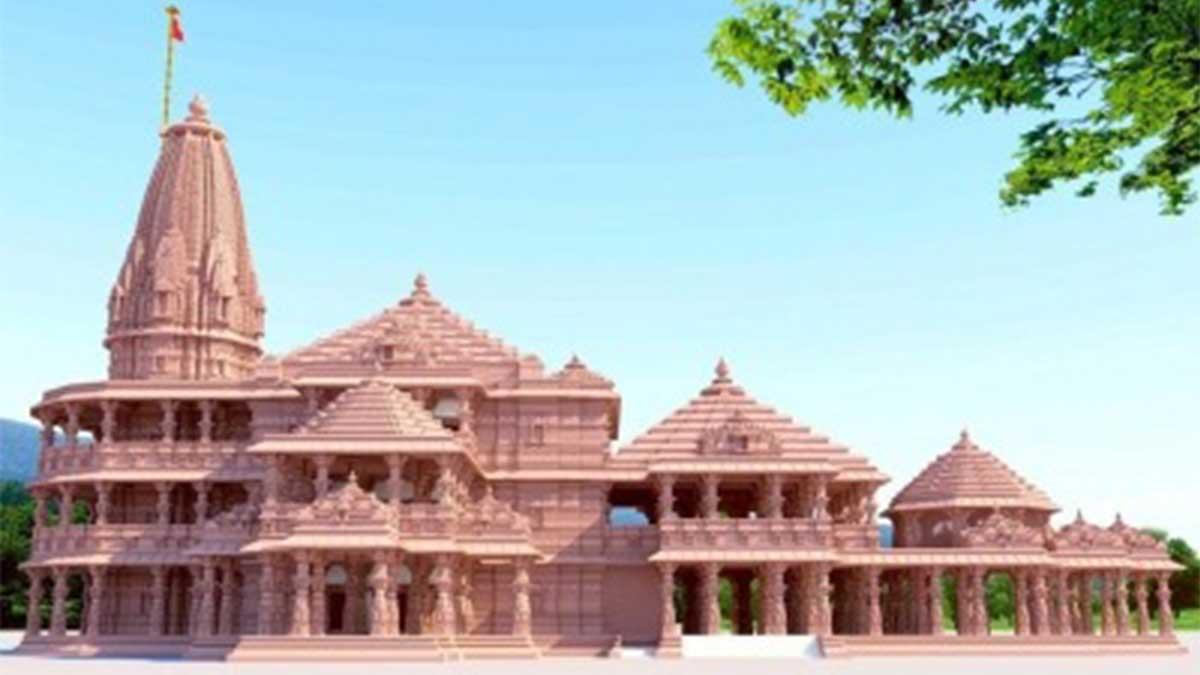The dozen odd Hindu petitioners in Mathura, seeking 'liberation' of the Shri Krishna Janmabhoomi from the Shahi Idgah, have been rejoicing ever since the Varanasi court ruled in favour of the Hindu petitioners in the Gyanvapi case.
The Varanasi district court ruled that the case was maintainable in the court of law and rejected the application moved by the Anjuman Intezamia Masjid Committee that the Places of Worship Act (Special Provisions) 1991 is applicable in this case.
The major opposition party in the litigation filed in the Mathura courts by Hindu petitioners is the Intezamia Committee managing the affairs at the Shahi Idgah mosque in Mathura.
It is mainly relying on this plea that the petitions filed in the Mathura courts are barred by the Places of Worship (Special Provisions) Act 1991 and has moved objections in most of the cases, they have appeared in, under Order 7 Rule 11 challenging the maintainability of petitions on this ground.
Also Read | Plea filed in Mathura for removal of another mosque
The Places of Worship Act (Special Provisions) 1991 states that the religious character of a place of worship existing on August 15, 1947, shall continue to be the same as it existed on that day.
The order passed by the Varanasi district court reminds of a similar order passed by the court of district judge, Mathura, on May 19, 2022 while hearing a revision.
District judge, Mathura, Rajeev Bharti on May 19, 2022 had passed the order in the civil revision no. 02 of 2021, Bhagwan Shrikrishna Virajman through next friend Ranjana Agnihotri versus UP Sunni Central Waqf Board and others.
The revision arose after the in-charge civil judge (senior division), Mathura, on September 30, 2020 dismissed the miscellaneous case number 176 of 2020 on the question of maintainability of suit on the ground that the petitioners (mostly lawyers from Lucknow, Siddharthnagar, Basti, Delhi) being the worshippers/devotees of Lord Krishna had no right to file the suit.
In its order dated May 19, 2022, the court of district judge Mathura too was of the view that the provisions of the Places of Worship Act (Special Provisions) Act 1991 are not applicable by virtue of Section 4(3)(b) of the Act and the case was re-instituted in the court of civil judge, senior division, Mathura.
The UP Sunni Central Waqf Board filed an appeal in the Allahabad High Court against the order passed by the district judge, Mathura, on May 19, 2022.
The high court on August 4, 2022 stayed the proceedings pending before the Mathura court and the stay order continues in the case filed by Ranjana Agnihotri and others.
It was the first case filed on the issue on September 25, 2020 seeking removal of the Shahi Idgah mosque and handing back of land measuring 13.37 acres to the Hindu deity.
However, the order passed by the Varanasi district court has given a ray of hope to the petitioners of about a dozen cases filed in the Mathura courts over the issue of Shri Krishna Janmabhoomi.
Treasurer of the Akhil Bharat Hindu Mahasabha (ABHM) and petitioner in two cases in the Mathura courts, Dinesh Sharma termed it a major victory for Hindus and distributed sweets.
"We will file copies of the order passed by the Varanasi court in various cases pending before Mathura courts. The order passed by the Varanasi court has strengthened our stand and has established that The Places of Worship Act (Special Provisions) Act, 1991, does not bar the petitions filed in regard to religious structures razed Mughal invaders," said Dinesh Sharma.
Meanwhile, Sharma has filed another petition in a Mathura court seeking the removal of yet another mosque - the Meena Masjid -belonging to the Mughal era.
The petitioner has claimed that the mosque was built on a part of the Thakur Keshav Dev Ji temple, on the east side of the Shri Krishna Janmabhoomi complex.
The suit has been registered in the court of civil judge (senior division) Mathura, Jyoti Singh.
In the fresh petition, Sharma claimed to be a devout follower of Thakur Keshav Dev Ji Maharaj (another name of Lord Krishna), who is 'petitioner number 1' in the case.
Tanveer Ahmed, secretary to and counsel for Intezamia management committee of the Shahi Idgah mosque, however, claimed that the Varanasi court order will have no effect on the cases in the Mathura courts.
Also Read | 40-ft veena reaches Ayodhya, to be installed at Lata crossing
"The matter in Varanasi is different from those in Mathura court and will have no impact. In Mathura, the order passed by the district judge on May 19, 2022, has been challenged and stay has been granted by the Allahabad high court," he added.
Legal experts, meanwhile, are of the opinion that the cases in both Varanasi and Mathura will depend on the stand that the apex court takes regarding the Places of Worship Act.
"It is going to be a long drawn legal process in both the cases," said a Supreme Court lawyer.


















